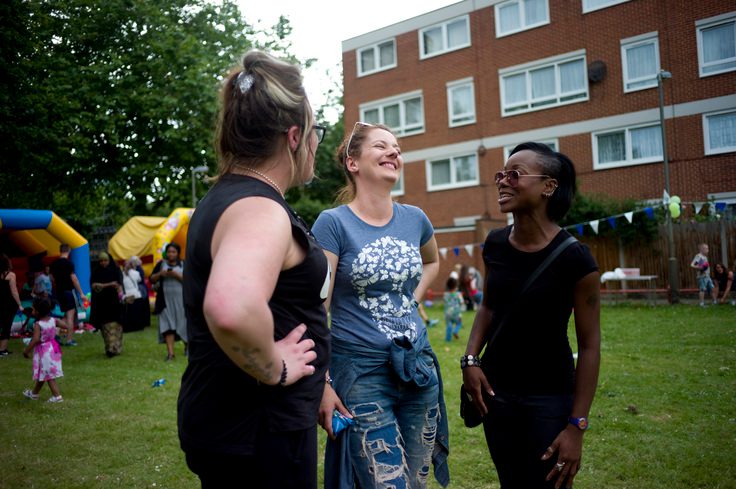
This piece is a celebration not just of our work, but of all of the great work which is taking place in neighbourhoods throughout Great Britain today. It is also a celebration of five years of the 51 society lotteries which make up The Health Lottery – through which we have received over £80m to-date. People's Health Trust's Chief Executive, John Hume, reflects on the great work taking place in neighbourhoods across Great Britain.
Five years is not up there with the giants of charities and grant-makers – those who have been running for hundreds of years – but it is significant. And it’s significant because of what we are trying to do.
We are working to support a wider understanding of what health is really about and this is highly relevant because the gap in life expectancy and years of healthy life between those who live in wealthy neighbourhoods and those who do not is staggeringly high: it’s shameful and a source of profound injustice.
People die younger than they should because the places and circumstances into which they were born, live, work and grow up work against them. They work against people being aspirational, work against them feeling they can change things, work against them feeling contented and work against them getting good jobs with decent pay. By doing this, they work against them being healthy. They cause anxiety, they leave people in a cycle of having to cope, rather than supporting them to flourish.
When we talk about health, we hear so much about the responsibility of the individual – and of course, individuals play a part, but it’s hard to do anything about your health when it’s not you who is the cause of your physical or emotional symptoms. Symptoms are all too often caused by social, not biological factors. For example having a rogue landlord, which means you have to live with damp in your house, or if you’re in a no-pay-low-pay work cycle, or if you have nowhere just to let the kids play outside safely or you’re constantly stigmatised and discriminated against because of where you live. These things are real causes of ill-health.
Because these fundamental causes of ill-health are avoidable, the issue of health inequity is a profoundly moral question. And it’s a moral question we have to deal with today.
For the past five years, we have been trying to do just that with the good causes money. We’ve been trying to work together to support local people to dispense social justice, not charity.
We have been talking to local residents, charities and groups throughout England, Scotland and Wales. We’ve been investing millions of pounds in them and supporting them to use their skills and knowledge to collectively address the things which they think are important for their health, not the things which we think will work.
At the heart of all of this is ensuring that local residents are in control over how the money is used locally and that they use their experience and knowledge to find the solution. We know that top-down policy initiatives are less likely to be successful than home-grown ideas.
We’ve seen first-hand the power of neighbourhoods deciding collectively how resources should be allocated locally. Over the last five years, we have funded well over 2,300 projects so they can do this, benefiting over 400,000 people, and you can read more about them in our most recent Annual Review.
Our most recent impact report for the Active Communities programme indicated that 81% of people who were funded through the Active Communities programmes felt a greater sense of belonging to their community and 85% said that being a part of a funded group had reduced their isolation. Being in control can make you feel more connected and reduce your isolation. And those are powerful determinants of health.
I’d like to thank the society lotteries operating through The Health Lottery for this important, sustainable source of funding for over 2,000 organisations addressing health inequalities.
I’d like to thank our evaluators, New Economics Foundation and Ecorys and our partners, as well as the University of Central Lancashire for their work with us and the Institute of Health Equity for their important partnership.
And finally, I would like to thank all of the local residents with whom we have worked in the last five years across the length and breadth of England, Scotland and Wales because it’s your partnership, your ideas and your drive which are ensuring that we’re addressing the social injustice of health inequalities in Great Britain today.
Thank you very much for celebrating this important milestone with us.
John Hume, Chief Executive - People's Health Trust
